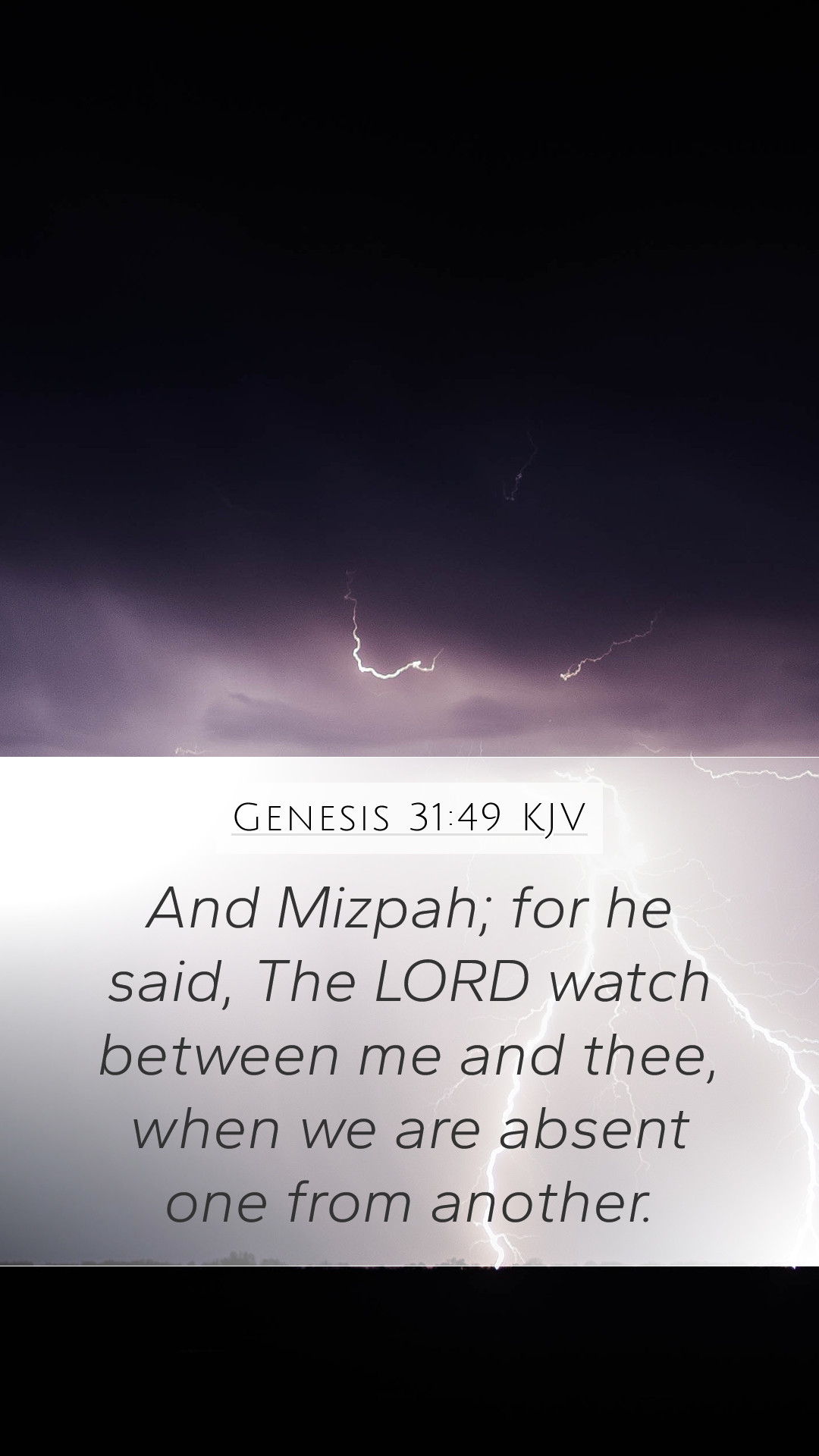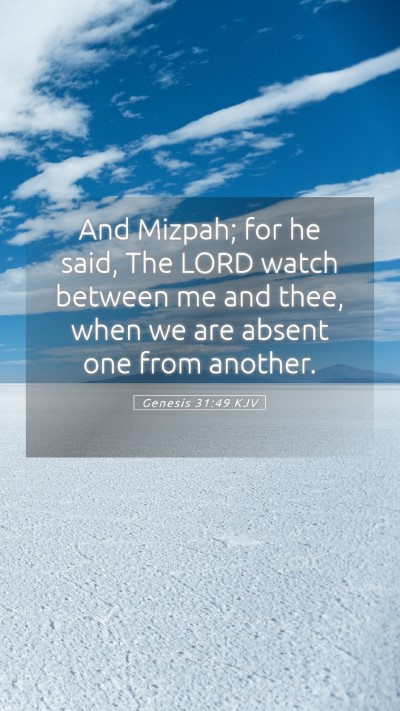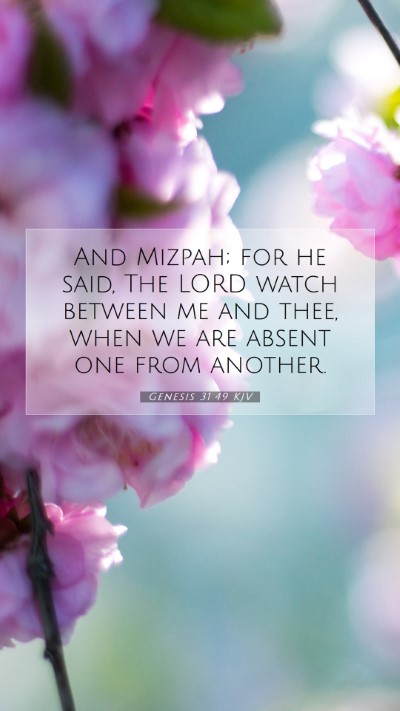Understanding Genesis 31:49
The verse Genesis 31:49 states, "And Mizpah; for he said, The Lord watch between me and thee, when we are absent one from another." This verse occurs at a significant moment in the narrative of Jacob and Laban, highlighting themes of covenant and the divine presence in human relationships.
Bible Verse Explanations
This verse represents a farewell between Jacob and Laban, demonstrating a complex relationship full of tension but also mutual recognition of unresolved issues. Here are summarized insights:
-
Matthew Henry's Commentary:
Henry reflects on the term "Mizpah," suggesting it denotes a watchtower, symbolizing both a physical and spiritual lookout. It captures the essence of God's oversight in human affairs, especially regarding relationships marred by mistrust.
-
Albert Barnes Commentary:
Barnes emphasizes the plea for divine vigilance, encapsulating the essence of trust and accountability. The expression "The Lord watch between me and thee" indicates a desire for God's presence in their interactions, emphasizing a covenant-like bond.
-
Adam Clarke's Commentary:
Clarke interprets the importance of maintaining integrity and mindfulness about their respective promises. His treatment of the verse underlines its practical implications in daily life, calling for a guardian-like attitude where God oversees our decisions and actions.
Bible Verse Interpretations
This verse invites various interpretations that enrich the understanding of Scripture:
-
Covenantal Relationship:
Both parties acknowledge a covenant-like relationship, emphasizing that even when apart, divine presence ensures observed conduct.
-
Human Relationships:
The plea for God’s vigilance illustrates significant trust and respect towards one another, inviting readers to consider the weight of divine accountability in their relationships.
-
Symbolism of Watchfulness:
Mizpah serves as a representation of a boundary that should not be crossed lightly, underscoring the vigilant guardianship that God provides in human agreements.
Scripture Analysis
The historical context of Jacob's departure from Laban highlights the dynamics of patriarchal family structures and tribal interactions. This analysis reveals multiple layers of significance:
-
Historical Context:
Jacob’s relationship with Laban signifies broader themes of migration, familial loyalty, and the trials of leading a spiritual life amid worldly disputes.
-
Emotional Tone:
The verse reflects a bittersweet farewell, combining themes of loss, hope, and divine intervention. This emotional depth invites readers to connect with the narrative at a personal level.
-
Relational Dynamics:
Exploring the relational dynamics between Jacob and Laban reveals insights into the nature of trust and the complexity of human relationships.
Meaning of Bible Verses
Understanding Genesis 31:49 revolves around several core principles:
-
Divine Oversight:
The assertion of God watching over their paths emphasizes the belief that nothing occurs outside of God's awareness.
-
Mutual Respect:
The use of this verse in modern conversation showcases the vital importance of respect in separations, hinting at maintaining integrity when apart.
-
Practical Guidance:
This verse serves as a guide for how people conduct relationships and the significance of invoking divine presence in human affairs.
Cross References
This verse relates to several other Scripture passages:
- Matthew 18:20 - “For where two or three are gathered together in my name, there am I in the midst of them.”
- Proverbs 5:21 - “For the ways of man are before the eyes of the Lord, and he pondereth all his goings.”
- Psalm 121:8 - “The Lord shall preserve thy going out and thy coming in from this time forth, and even for evermore.”
Conclusion
Genesis 31:49 offers rich biblical exegesis possibilities, reminding readers of the continual presence of God amid human relationships. By applying the principles derived from this verse, one can cultivate a deeper understanding of community, trust, and divine oversight in daily life.


